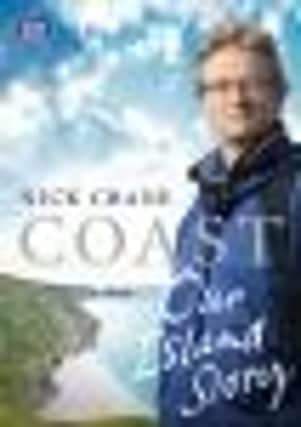Book review: Coast: Our Island Story by Nick Crane


The rocks which form Britain’s shores date back three billion years, more than half the age of the planet, and layer upon layer they reveal stories of the people who have lived, worked and played on the coast.
Using his five years as presenter of BBC’s popular Coast series, Nick Crane takes us on a journey of exploration, presenting a fascinating portrait of how our extraordinarily beautiful shores have nurtured and protected us over thousands of years.
Advertisement
Hide AdAdvertisement
Hide AdFishermen, traders, smugglers, wreckers, surfers and sandcastle builders – all have helped these islands to evolve.
Today our coast is under threat from global warming and rising seas, but the greatest loss occurred about 7,500 years ago in the east when ‘Doggerland,’ a wide land bridge linking Britain to the continent, finally disappeared into the sea.
In the same Mesolithic age, hunter-gatherers along the coast began building fishing boats known as coracles which, Roman commentator Pliny the Elder reported, were ‘constructed of osier covered with sewn hides’.
Fish has always been a staple part of the Briton’s diet and in the Medieval period it became a major trading commodity.
Advertisement
Hide AdAdvertisement
Hide AdThe fishing industry, in turn, gave birth to Britain’s thousands of ports and harbours, vital not just for trading fish but also for the export of a diverse range of raw materials and products found on our mineral-rich, temperate islands.
The coast is our first and last line of defence with headlands valued for their panoramic views. Promontory forts and castles dating back thousands of years stud our shores from Caithness to Cornwall, and Pembrokeshire alone boasts 56 such fortifications.
Wrecking and smuggling have also featured large in our history while beach scavenging has been second nature to Britons since the earliest hunter-plunderers set up camp near the shores.
The Romans were among the first to discover the delights of sun, sand and sea bathing, but it wasn’t until the Tudor period that it was recognised here as not just enjoyable but medicinal.
Advertisement
Hide AdAdvertisement
Hide AdYarmouth was one of the first health resorts while here in the North West, an area between the Ribble and the Wyre noted for its black, peaty pools and sandy, west-facing beach and used as a seamark by sailors, first appeared on a navigational chart in 1736 as ‘Blackpool Town’.
Further down the coast, meanwhile, the foundations of a resort called Southport were being laid by William ‘Mad Duke’ Sutton, the fiddle-playing landlord of the Black Bull in Churchtown, when he built a bath-house a couple of miles outside the village.
Crane is a witty and knowledgeable raconteur and along with a selection of beautiful colour photographs and entertaining encounters with the people who live on the edge, Coast proves to be an enthralling voyage of discovery.
(BBC Books, hardback, £18.99)